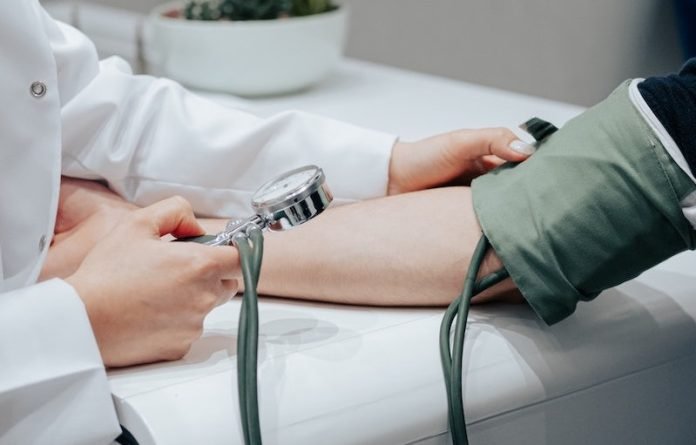
Hypertension (high blood pressure) happens when blood flows through your arteries at higher-than-normal pressures over time.
This makes the heart and blood vessels work harder and less efficiently. Nearly half of all adults have hypertension, and it is more common among African American and Hispanic/Latino adults than other groups.
What is hypertension?
Hypertension (high blood pressure) develops when blood flows through your arteries at higher-than-normal pressures over time.
Arteries that have narrowed because of a buildup of cholesterol make the heart and blood vessels work harder, increasing blood pressure.
Your blood pressure measurement is made up of two numbers: systolic and diastolic. Normal blood pressure is less than 120 (systolic)/80 (diastolic) mm Hg.
High blood pressure is diagnosed when you have consistent systolic readings of 140 mm Hg or higher or diastolic readings of 90 mm Hg or higher.
Hypertension is known as the silent killer because most people do not have symptoms of hypertension, so it’s important to have your blood pressure checked regularly.
If not controlled, high blood pressure can lead to heart disease, stroke, heart attack, heart failure, and chronic kidney disease.
Who is affected by hypertension?
Nearly half of all adults in the United States have hypertension.
High blood pressure is more common in African American and Hispanic/Latino adults than in other groups. Only 1 in 4 adults living with hypertension have their condition under control.
How is hypertension treated?
You may be prescribed FDA-approved medications to control or lower your blood pressure. Types of hypertension medications include:
- Angiotensin-converting enzyme (ACE) inhibitors: Keep blood vessels from narrowing.
- Angiotensin II receptor blockers (ARBs): Keep blood vessels from narrowing.
- Calcium channel blockers: Allow blood vessels to relax.
- Diuretics: Remove extra water and sodium (salt) from your body, reducing the amount of fluid in your blood.
- Beta blockers: Help your heart beat slower and with less force so that it pumps less blood through your blood vessels.
Your health care provider may also recommend that you adopt a heart-healthy lifestyle by:
- Choosing foods that are lower in sodium (salt) and those that are rich in potassium
- Avoiding or limiting alcohol
- Being physically active
- Aiming for a healthy weight
- Quitting smoking
If you care about blood pressure, please read studies about cannabis linked to 3-times higher death risk in high blood pressure, and beetroot juice could help lower high blood pressure.
For more information about blood pressure, please see recent studies about how to treat slightly high blood pressure, and results showing plant pigment can strongly reduce blood pressure.



